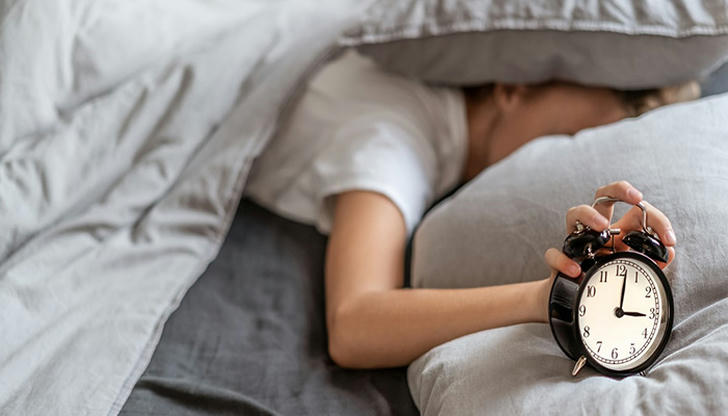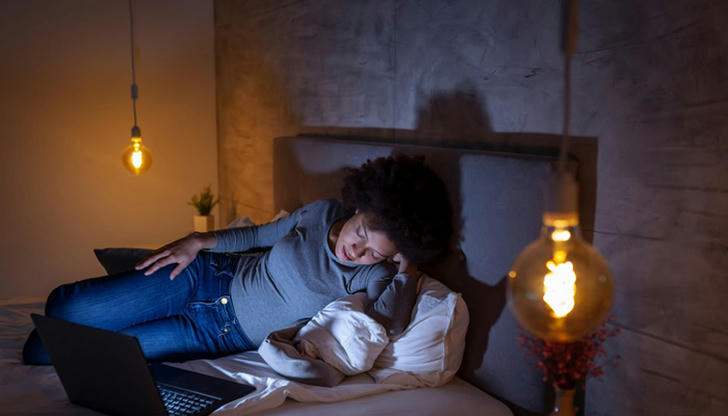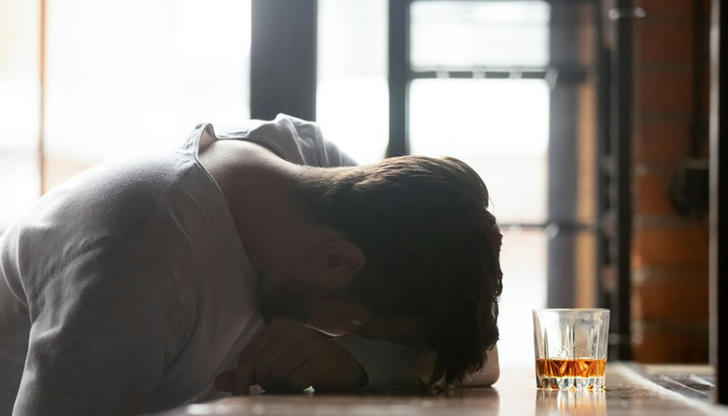6 Reasons You're Getting Poor Sleep Quality

Are you averaging fewer than seven hours of sleep each night? If so, you’re not alone. In fact, it’s become so common that the Centers for Disease Control and Prevention has labeled this phenomenon a public health epidemic. You might feel like the struggle to get a good night’s rest is all-consuming, but with some adjustments to your routine, everything will return to normal before you know it. If you’ve been struggling to get enough rest lately, read on for six reasons why and how you can remedy the situation as quickly as possible.
Exposure to Blue Light

Blue light from your phone, tablet, or computer screen impedes production of melatonin, the hormone responsible for telling your body it’s time to sleep. Although you might think scrolling through your phone for a half-hour before bed will help you fall asleep more quickly, the opposite is actually true.
Spending long periods of time in front of a screen before bed can disrupt your circadian rhythm and make it harder to fall asleep, resulting in less restful sleep and less productivity during the day. To avoid these issues, try to avoid blue light after sundown.
Stress and Anxiety

Achieving a state of relaxation is the first step towards a restful night’s sleep. If you’re stressed or anxious, you’re much less likely to sleep soundly. Identify your stressors and determine an action plan for dealing with them.
Do you have difficulty falling asleep because you’re worried about work, money, family, or other issues? If so, try to identify your anxieties and address them one by one before bedtime. You might find it helpful to journal about your anxieties or discuss them with a friend or family member who can help you process your feelings.
Poor Sleep Habits

There are a few habits you should try to break before they become bad habits you can’t break. You should be able to comfortably fall asleep, lie down, and stay asleep in your bedroom. Make sure there’s no light streaming in from outside, and keep the temperature below 75 degrees Fahrenheit.
Try not to eat a large meal before bed. Your body needs time to digest food before you go to sleep, so it may take a long time to fall asleep, or you may not sleep as deeply.
Finally, don’t get into bad sleep habits. If you’re tired and don’t want to fall asleep, you’re likely not sleeping deeply and may not get the restorative benefits of sleep. If you suspect you’ve developed a sleep disorder, consult a doctor.
Your Environment

Your bedroom is your sanctuary, a place where you can truly relax and unwind. It’s important to make sure your bedroom is conducive to restful sleep. Try to make your space as dark and quiet as possible, and eliminate clutter. You should be able to walk into your bedroom and feel instantly relaxed.
Beyond your physical environment, you should also consider your mental environment. The last thing you want to do is lie in bed and replay the day’s events in your head.
Your Diet

Are you eating enough protein? A lack of protein may lead to poor sleep quality, and protein may also boost melatonin production. Iron deficiency may also lead to poor sleep quality, as iron is a necessary mineral for healthy sleep patterns. Fibrous foods may also promote healthy sleep.
Try eating more fresh fruits and vegetables, whole grains, and legumes like beans. Avoid drinking caffeine and alcohol late in the day and in the evening. Salt and sugar intake may also affect the quality of your sleep. Try to avoid eating heavily salted or sugary foods before bed.

